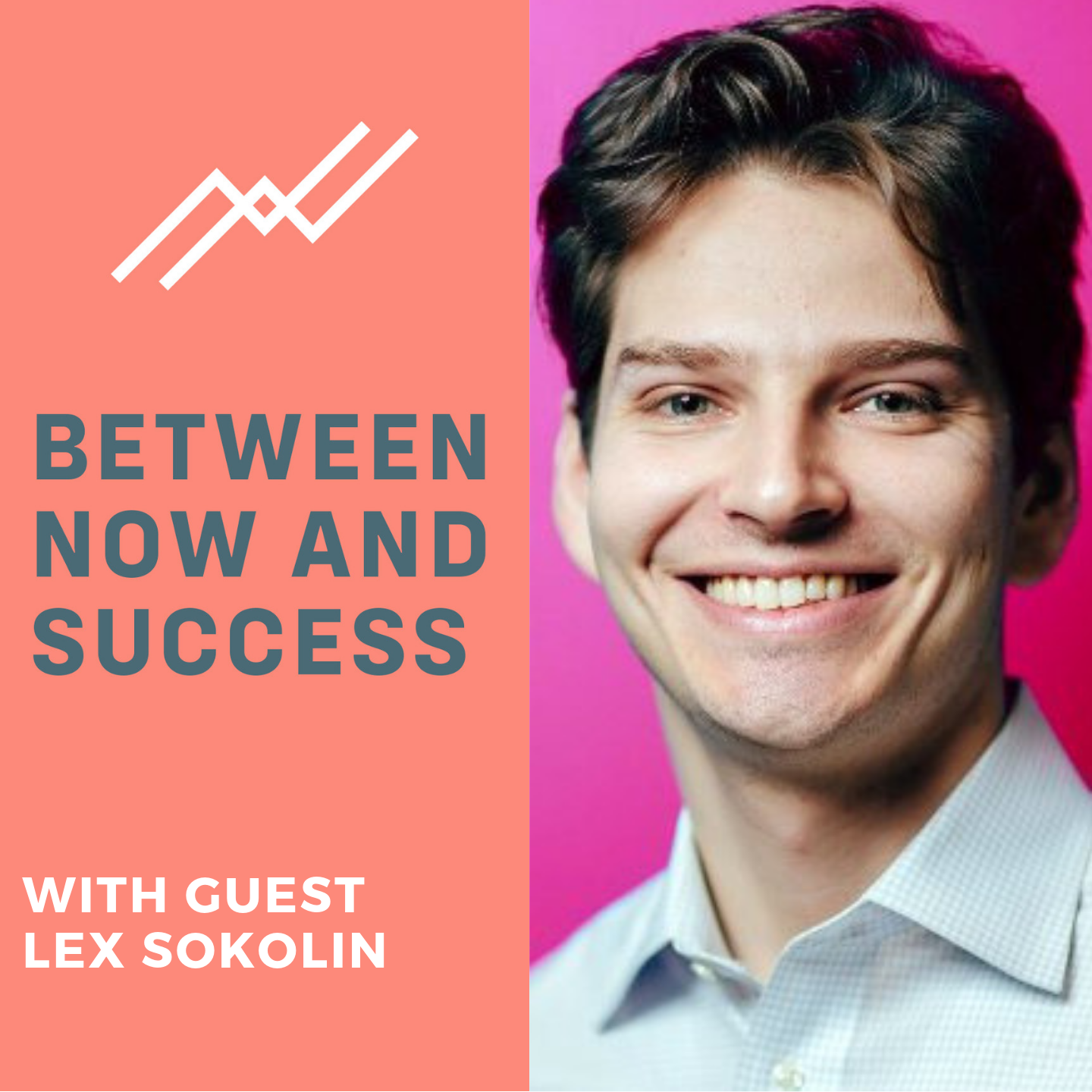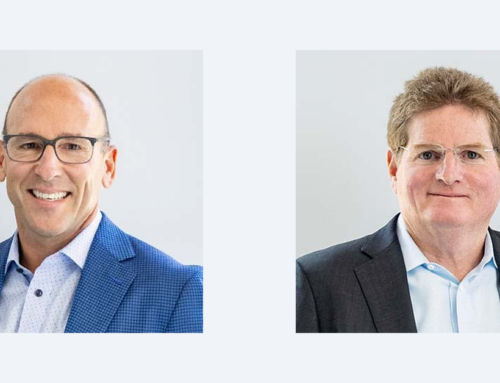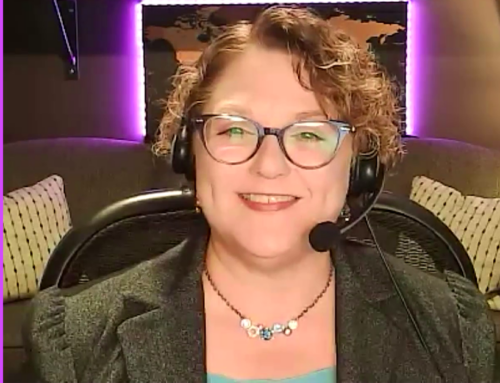A top-notch tech stack is table stakes. And you won’t “out tech the tech titans” so you can’t win on technology.
So what can a financial advisor do to remain relevant and thrive in the years ahead?
You can double-down on your ability to humanize the advisor-client relationship, to understand and deliver on exactly what your clients really need, and you should do it in a technologically-enhanced way.
“You’re not competing on your toolkit or the software that you deploy in your office,” says podcast guest Lex Sokolin. “You’re competing on the core need, which is that most people don’t have enough money. They don’t know how to retire. They’re super anxious. I think the smart financial advisor will shade the constructs of how they work and move towards what the human need is in this evolving world.”
Lex Sokolin is the Global Fintech Co-Head at ConsenSys, a blockchain technology company building the infrastructure, applications, and practices that enable a decentralized world. Lex is also a futurist and entrepreneur whose newsletter, Future of Finance, should be on your must-read list every week if you want to stay ahead of the curve (I read it each week).
In today’s conversation, we discuss the sweeping changes in the fintech landscape and what new skills advisors will need to thrive in an industry that’s getting more digital and more automated every day.
To continue reading how to optimize your skill set for the digital age, register below.
Convergence creates an opportunity.
When we talked in 2018, Lex and I wondered how financial services might change if, say, a Google or an Amazon decided to enter our field.
Well, fast forward to today and the big new players in banking, lending, and robo advising are … the old guard. Firms like Goldman Sachs, JP Morgan, and Schwab are trying to position themselves as complete financial platforms to attract users who are more digital savvy than their traditional customers.
As Lex points out, this is quite a turnaround from the attitude large firms had about non-affluent, mass-market customers in the early 2000s.
“Firms like Goldman Sachs or Morgan Stanley, I was at Lehman Brothers, they would say, ‘How can we fire these clients? We don’t like these clients. It costs us too much to serve them.’ If you look at the incumbent firms, every single one has a digital wealth strategy. And the ones that are the best, Goldman Sachs, J.P. Morgan and Schwab, the ones who are winning are the ones who have the best digital strategy and they have the best customer economics. Because their cost of servicing is lower. And the smart money is on not just taking your existing practice and adding some digital tools to it. It is building a fully digital practice.”
Newer firms are realizing that digital convergence is the future as well. The Betterments and Robinhoods of the world are adding banking services to keep their millennial client base tied to their platforms. And of course, all of these platforms are, essentially, racing each other to the bottom with lower and lower fees.
They’re also just snapping up all the low-hanging fruit. The choice pickings further up the tree trunk might be getting smaller. But they’re also becoming more valuable for advisors who know how to harvest them.
Hone your craft.
The simple fact is that an independent RIA can’t compete with these huge platforms on basic investment management and, increasingly, in traditional personal finance areas like banking and lending.
Instead, Lex believes that financial advisors need to redefine who we are and what we do. He warns, “If you think of a financial advisor as a person who is formally trained, gets a license, puts on a suit, prospects, meets a client in an office, takes down handwritten notes and then goes to asset allocation or risk tolerance software to generate a proposal and then puts that pie chart back in front of a client and schedules meetings through CRM … then there is no doubt in my mind that the space for that set of functions is shrinking.”
Where it’s shrunk down to is the cell phone. A person who just wants basic advice on mortgage shopping or opening an IRA isn’t going to ask you. He’s going to ask Alexa, or Siri, or Google, or download an app where he can complete a transaction in just minutes. On-demand info and basic transaction services is just another place where your business can’t compete.
Instead, “think about craft,” advises Lex. “Financial advice is craft. It’s a human being, highly skilled, doing good work, making sort of aesthetic recommendations. If you wanted to get a portrait done and it was the 1600s, you would go to Leonardo or Michelangelo. Then you go from portraiture to photography. So now everybody is able to take a picture of their loved ones. But as a result, everyone who’s a painter, their job changes. Instead of drawing realistic depictions of people, it’s all abstract expressionism and cubism and emotions. And then from photography you go into a world of digital photography.”
Of course, we’re experiencing a far more rapid rate of change right now. But to dramatize Lex’s point, imagine someone dropped Leonardo in a time machine. From what we know about the breadth of his curiosity and talents, do you think he’d be reaching for oils and canvas in 2019? No way. He’d have a digital camera in each hand and VR googles on his head, trying to see and create in new ways.
So ask yourself, “Do you want to be a portrait painter from the 1600s or do you want to be the artist who uses new tools to enhance your craft and create a more beautiful picture of what your clients’ lives could be like?”
“You have a choice,” Lex says. “You can choose to be in a market environment and in a life where you say, ‘Structurally every single year financial advisor fees are going down. So the world I live in is getting smaller every single year and for my small clients, now there’s more and more competition, so it’s harder for me to focus there. So now I have to be firing clients, and I have to be worried about my fee compression, and I have to be worried about my security selection, that I’m not going to be able to perform as well.
“And so that second road is to say, ‘Maybe I’m going to do something that breaks the economics of my prior world view, but I’m going to feel really positive and optimistic. Because the things it could do are going to allow me to out-compete a lot of people who are stuck in world one.’ What sort of environment do you want to put yourself into?”
Do what your tech stack can’t.
Lex says automation, digitization, and AI will continue to define and refine how traditional financial services operate. Apps will automate paperwork. Assets will become digitized and programmable via smart contracts and blockchain technology. AI will use what it knows about your clients to suggest portfolio moves based on up-to-the-minute market trends. And as the big digital platforms continue to grow, they’ll broaden their services to include things like insurance products.
This is what your firm’s tech stack is going to look like, if it doesn’t already. It’s also what every firm’s tech stack is going to look like. Even small independent RIAs are going to be able to offer clients these services through custodians. Being adept at this tech isn’t going to be a differentiator. It’s going to be as basic a skill as calculating interest.
What will differentiate you is the human component of your business. The advice component. The human to human component.
“It is not worth a human being’s time to sell product to another human being,” Lex says. “Life on earth is too precious for me to try to get you to sign up for a bank account. A robot on the internet is doing a thousand times better job at that by putting a Goldman Marcus ad in my Google search when I look for bank accounts. It’s far more effective than me trying to do it on the phone. So the only use of human time is empathy, wisdom, and broad cross-product advice.”
Going forward, every advisor is going to have a great tech stack. But not every advisor has those one-on-one skills that create clients for life. Communication, storytelling, and the ability lead clients through major life transitions are the skills that will become more in-demand, more valuable, and more essential to your success.
Resources
– LexSokolin.com Read the latest from Lex Sokolin and sign up for his “Future of Finance” newsletter.
– ConsenSys Check out the blockchain and fintech developments Lex and his team are working on.
– Your Value Is In Transforming, Not Informing Your Clients My 2018 conversation with Lex Sokolin.
– Values Clarification Toolkit Click here to download this FREE tool and start living your values.





